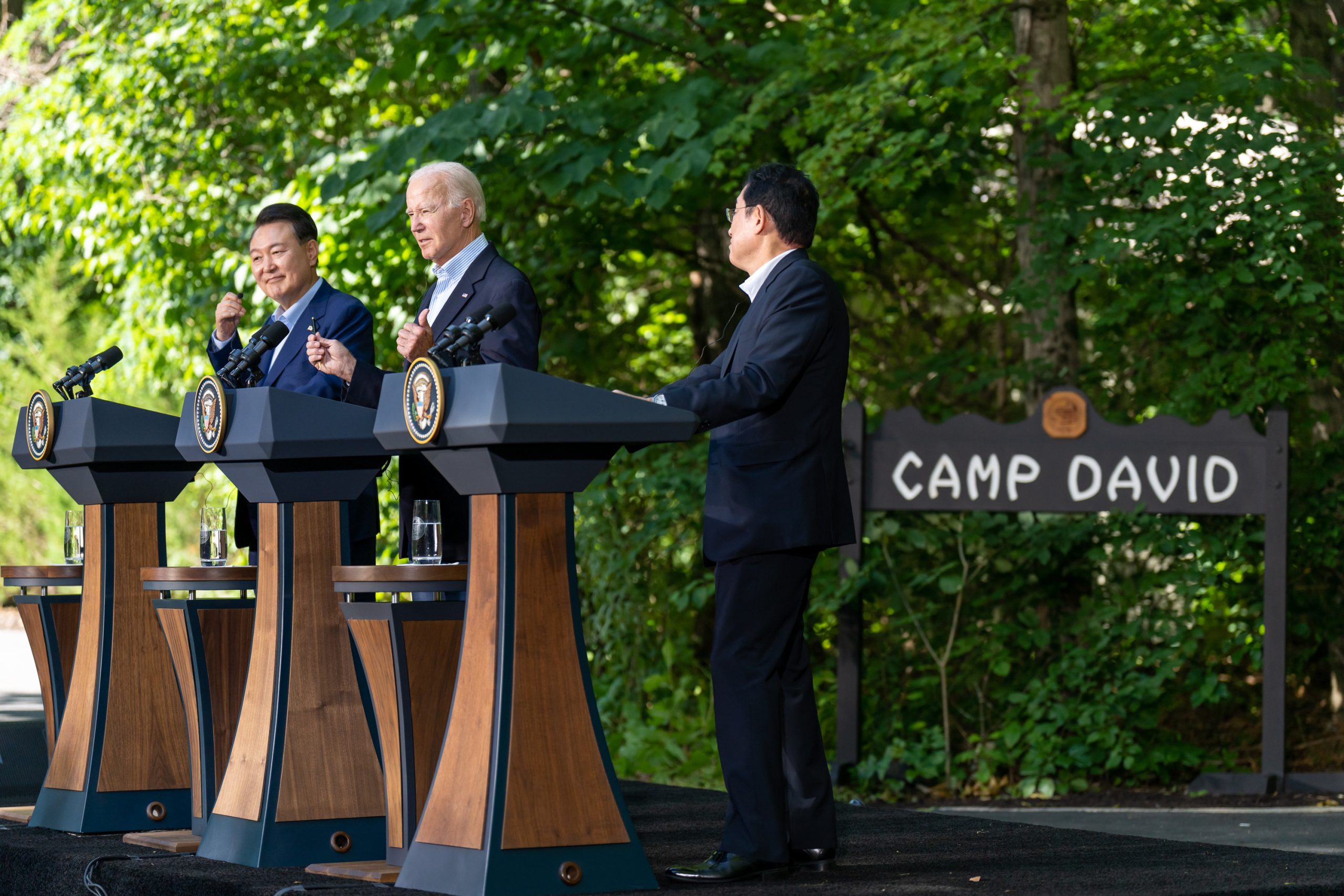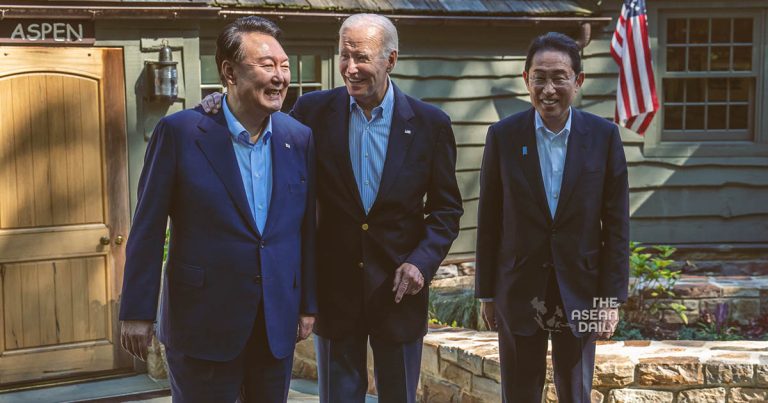19-8-2023 (CAMP DAVID) US President Joe Biden, along with the leaders of Japan and South Korea, expressed their commitment to a “new chapter” of enhanced three-way security cooperation during a groundbreaking summit that has already unsettled China.
At the Camp David presidential retreat, President Biden, sans necktie, lauded the “political courage” of South Korean President Yoon Suk Yeol and Japanese Prime Minister Fumio Kishida in moving past historical animosities.
“As we stand together, our countries grow stronger, and the world becomes safer. This is a belief that the three of us share,” President Biden declared as the talks commenced in the wooded hills near Washington.
President Biden pledged that the three nations would embark on “this new era of cooperation” and reaffirm their commitment to being a force for good across the Indo-Pacific region and globally.
In a joint statement, the leaders expressed their opposition to China’s “dangerous and aggressive behavior” as it asserts its influence in maritime disputes in the East and South China Sea.
“We firmly reject any unilateral attempts to alter the status quo in the Indo-Pacific waters,” the statement declared.
Although the United States’ two treaty-bound allies largely share a common worldview and host approximately 84,500 American troops, a summit of this nature would have been inconceivable until recently due to the legacy of Japan’s harsh occupation of the Korean peninsula from 1910 to 1945.
However, President Yoon, taking domestic political risks, has turned the page by resolving a dispute over wartime forced labor and now considers Japan a partner during a period of heightened tensions with both China and North Korea.

“Today will be remembered as a historic day, where we established a firm institutional basis and made commitments to the trilateral partnership,” President Yoon remarked.
The three leaders also agreed to a multi-year plan of regular joint exercises across all domains, surpassing one-time drills conducted in response to North Korea, and vowed to engage in formal consultations during times of crisis.
Additionally, they pledged to share real-time data on North Korea and hold annual summits.
The Camp David summit marks the first standalone meeting of the leaders of the three countries, not held on the sidelines of a larger event. It is also the first diplomatic gathering at the resort since 2015 when it became synonymous with Middle East peacemaking.
While President Biden’s national security adviser, Jake Sullivan, characterized the summit as an “affirmative vision” for the collaborative efforts of the three nations, US Ambassador to Japan Rahm Emanuel took a different tone, stating that the three powers had “created something that is exactly what China was hoping would never happen.”
For Ambassador Emanuel, a former congressman turned diplomat, China must understand one fundamental fact: “We are the rising power, and they are declining.” Under President Xi Jinping, China has been flexing its muscles both domestically and in Asia, asserting disputed maritime claims and conducting major military exercises near Taiwan, a self-governing democracy that Beijing claims as its own.
Chinese Foreign Minister Wang Yi urged the economically developed Northeast Asian democracies to work with Beijing to “revitalize East Asia.” However, his comments were met with skepticism in Japan and South Korea, where China’s pressure tactics have led to a sharp decline in its favorability.
Tensions have also escalated with North Korea, which has conducted a series of missile launches in recent months and may respond to the summit with further provocative actions.
The joint statement reiterated the call for North Korea to abandon its nuclear weapons and urged all nations to enforce sanctions.
Beyond the focus on North Korea and Asia, the summit aims to institutionalize trilateral cooperation, making it difficult for future leaders to reverse the progress made. This includes the possibility of a South Korean president who stokes hostility with Japan or a potential return of Donald Trump, who criticized US troop commitments overseas as wasteful.
Surprisingly, President Yoon’s embrace of Japan has received relatively muted protests at home. As a conservative leader, President Yoon has quickly become a close ally of the United States, and President Biden welcomed him on a rare state visit, during which the South Korean leader delighted the audience by singing “American Pie.”
However, President Yoon is constitutionally prohibited from serving more than one term, which concludes in 2027.




